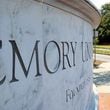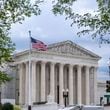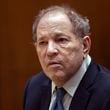Atlanta Public Schools’ leaders have been tight-lipped about their strategy to oppose the massive Gulch deal, but a document shows the district has been considering a legal objection since at least late November.
More than a week before the Atlanta school board voted Dec. 7 to restrict the further use of school taxes for the downtown project and other future Westside development, the district had selected an outside firm, to be paid up to $615 an hour, to provide legal help.
A Nov. 27 letter to APS from the law firm of Duane Morris thanked the district for selecting the firm to represent the school system “in connection with an anticipated objection to a bond validation proceeding to be filed by the City of Atlanta involving an area of downtown Atlanta called the ‘Gulch.’”
The letter, which The Atlanta Journal-Constitution obtained in response to an open records request, does not include a total cost for the law firm’s work but sets the pay rate for one attorney at $615 per hour and at $500 an hour for another attorney.
A high-level APS employee did end up contesting the bond-validation proceedings in Fulton County Superior Court on behalf of the school district, which is paying her legal fees. State law requires a bond validation hearing before government entities can issue bonds. A judge is expected to consider arguments from the city and Gulch opponents on Dec. 19.
School district officials have been mostly mum about their plans to try to negotiate public financing terms related to the Gulch project, a 40-acre mini-city to be built by California-based developer CIM Group.
APS spokesman Ian Smith said the school board discusses “potential litigation issues” in closed session and during that time advises the superintendent and district attorneys. He said the school board did not need to have a public vote before hiring a law firm or objecting to the validation of the Gulch bonds.
Smith said the school board previously authorized its attorney “to hire additional legal counsel when needed and this has been a longstanding legal process in APS.”
The Atlanta City Council in November approved a public financing package for the Gulch of up to $1.9 billion that includes school tax dollars collected in the Westside Tax Allocation District, or TAD.
The city has said that deal does not require the school system's approval, though the school board voted Dec. 7 to require its written OK before school property tax dollars can be used to fund future development in the Westside taxing district. APS participates in five TADs -- areas where a portion of property taxes are collected for a period of time to pay for redevelopment there. District leaders want the city to renegotiate the terms of those five TADs before agreeing to a Gulch deal.
After last week’s school board meeting, APS officials did not detail their next steps, though the school board instructed APS administrators to continue to negotiate with the city.
The bond validation hearing began Monday. Instead of APS intervening in the court proceeding, one of its employees did so on behalf of the district. Erica Long, the district’s senior adviser for policy and government affairs, is being represented by the law firm the district hired.
Smith said that Long intervened instead of the district because the law doesn’t allow an entity such as a school district to “directly intervene” in the bond validation hearing. He said the law requires that the objector be an individual who lives in the city -- requirements Long meets.
“APS is paying for the legal fees to support the position of our court recognized intervener,” he said, in a written statement.
“The court continued the hearing until next week, which gives APS time to continue our discussions with the city. We will continue those discussions with reasonable hope for a resolution. APS is not commenting on those discussions or our legal strategies,” he said.
About the Author







